Can I Use a Car Battery for a Boat – Discover the Truth!
Using a car battery on a boat is generally not advisable, as car batteries are designed for short bursts of power, while marine batteries support sustained energy output and endure harsh conditions.
Car batteries can work temporarily in small boats with minimal electrical needs, but their lifespan and performance will suffer significantly in a marine environment.
They are more prone to damage from vibrations, moisture, and corrosion, leading to safety risks like leaks or failures. For long-term reliability, investing in a marine battery is essential.
Introduction:
When preparing for a day out on the water, one of the last things you want to deal with is a battery failure. For many, the thought may arise: “Can I use a car battery for my boat?” While the idea might seem convenient, the answer is far from straightforward.
Both car batteries and marine batteries serve a crucial function, but their designs, purposes, and durability are suited for very different environments.
In this article, we’ll explore the differences, pros and cons, and whether or not you can use a car battery for a boat, while also uncovering the best practices for battery maintenance on the water.
Understanding the Differences Between Car and Marine Batteries:
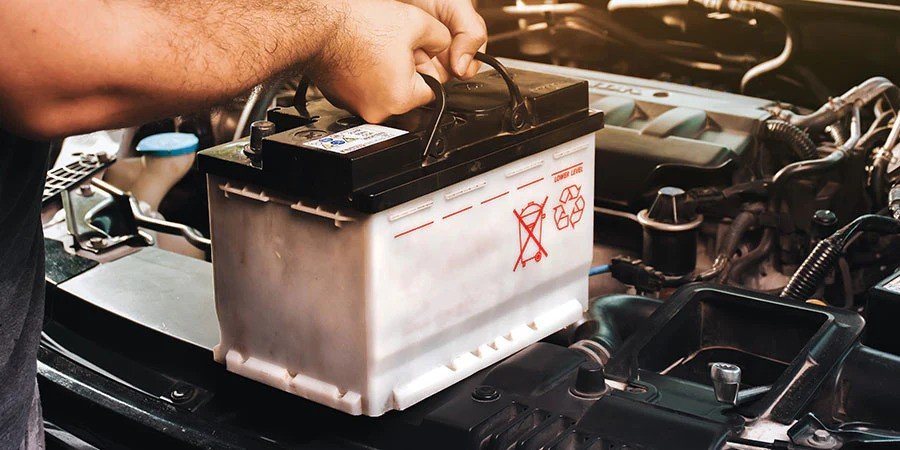
Key Functions of Car Batteries:
A car battery is engineered with one primary task: to provide a quick burst of high-power energy to start the engine. Once the car is running, the alternator takes over, recharging the battery as you drive.
Car batteries are designed for short, intense surges of energy—think of them as sprinters. These batteries are not meant for prolonged power output and are susceptible to rapid depletion when continuously used without recharging.
What Sets Marine Batteries Apart?
Marine batteries, on the other hand, are designed with endurance in mind. Boats often require power for extended periods, powering not only the engine but also auxiliary systems such as lighting, navigation equipment, and radios.
Marine batteries are built to handle deep discharges, making them better suited for long-term energy output. They are often categorized as deep cycle or dual-purpose, allowing them to both start the engine and provide steady power over long periods.
Why Battery Design Matters for Boats:
In the marine environment, battery performance is not just about power. Marine batteries are constructed to withstand the vibrations, shocks, and moisture that are common on boats.
Unlike cars, where smooth roads are the norm, boats frequently encounter rough water conditions that can damage standard car batteries. This structural difference ensures marine batteries are more resilient and longer-lasting under the unique stresses of the open water.
read also: Can a Bad Alternator Stop Battery from Charging – Quick Fix Guide!
Pros and Cons of Using a Car Battery for a Boat:
Advantages of Car Batteries for Boats:
At first glance, the major advantage of using a car battery on a boat is cost and availability. Car batteries are generally cheaper and easier to find than their marine counterparts. In a pinch, they can start smaller boat engines or provide temporary power.
For boaters who only head out on the water occasionally or who are looking for a quick fix, a car battery might seem like an attractive option. Additionally, in smaller crafts with limited electrical needs, a car battery might suffice, especially for short trips.
The Potential Downsides of Using a Car Battery on the Water:
Despite the potential cost savings, the drawbacks of using a car battery in a marine environment are significant. Car batteries are not built for repeated deep discharges, which means their lifespan can be drastically shortened when used to power a boat for extended periods.
They also lack the rugged design needed to cope with the rough conditions at sea, making them prone to damage from vibrations and water exposure. Over time, this can lead to early battery failure, leaving you stranded at the worst possible moment.
Safety Risks and Concerns:
One of the most pressing concerns when using a car battery for a boat is safety. Marine environments are harsher than the typical conditions a car battery is designed for. Exposure to saltwater, extreme temperatures, and continuous vibrations can compromise the battery’s integrity.
This not only shortens its lifespan but can also lead to dangerous malfunctions like battery leaks or even explosions. Proper ventilation and moisture resistance are critical, and car batteries simply aren’t built to withstand these conditions.
When Can You Safely Use a Car Battery for a Boat?
Situations Where a Car Battery Might Work:
There are limited scenarios where a car battery could be used on a boat. Small, lightweight boats with minimal electrical systems, such as simple fishing boats or dinghies, might be able to operate effectively on a car battery for a short period.
In such cases, a car battery can be a quick solution for infrequent boaters or as a backup power source in emergencies. However, this is not a long-term solution, and it’s crucial to monitor the battery’s health closely.
Small Boats vs Large Boats: Battery Requirements
The size of your boat plays a key role in determining whether a car battery is a viable option. Larger boats with more advanced electrical systems and greater power demands should never rely on a car battery.
These boats require batteries designed to handle sustained power output and deep cycling, which car batteries cannot provide. On the other hand, smaller boats may get by temporarily, but a proper marine battery will always perform better in the long run.
Short-Term Solutions vs Long-Term Battery Needs:
If you’re only looking for a short-term fix, a car battery might suffice, especially for a quick day trip or as an emergency backup. However, for long-term reliability and performance, investing in a marine battery is essential.
Over time, the cost of constantly replacing depleted car batteries can outweigh the initial savings, making a marine battery the smarter financial choice.
How Car Batteries Perform in Marine Environments:
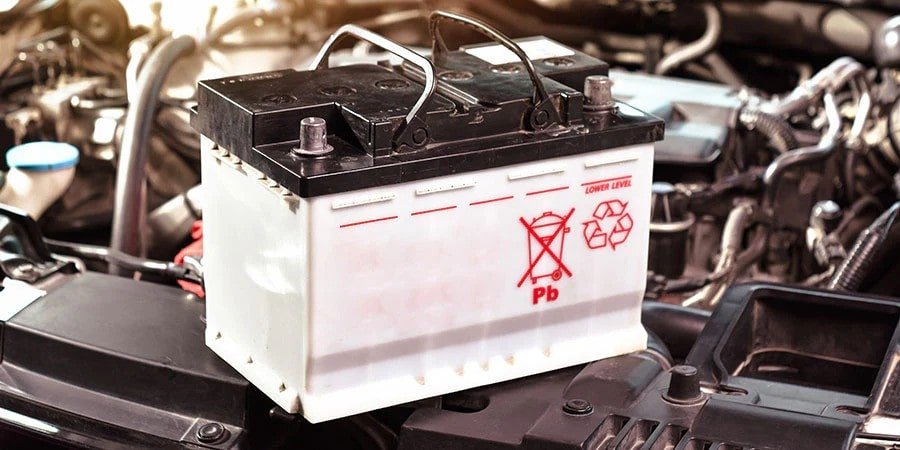
The Impact of Vibration and Rough Waters on Car Batteries:
Vibration is one of the key enemies of car batteries in a marine environment. Unlike cars, which experience relatively smooth rides, boats are subjected to constant jarring from waves.
Car batteries are not designed to endure this kind of continuous impact, leading to potential internal damage that can shorten their lifespan. Marine batteries, on the other hand, are fortified with thicker casings and stronger internal components to resist damage from vibration.
Can Car Batteries Withstand Saltwater and Humidity?
Saltwater and humidity are pervasive in marine environments, and they can corrode and weaken car batteries. Marine batteries are sealed and coated to resist the corrosive effects of saltwater, while car batteries are not.
Even limited exposure to moisture can cause a car battery to malfunction or fail entirely. If your boating adventures take you to saltwater areas, the use of a car battery becomes an even riskier proposition.
Understanding Car Battery Lifespan in a Marine Setting:
The lifespan of a car battery when used in a marine environment is significantly reduced compared to a marine battery. Car batteries are built to deliver short bursts of power followed by recharging, not for long stretches of energy output without recharge.
Continuous draining without the ability to recharge quickly will wear out a car battery faster, often within a matter of months, as opposed to the years a marine battery is designed to last.
read also: Why does my car battery light stay on even after replacement – Fix it now!
What Type of Battery Does Your Boat Actually Need?
Exploring Deep Cycle and Dual-Purpose Marine Batteries:
When it comes to boats, deep cycle batteries are the gold standard. These batteries are designed to deliver consistent power over long periods and can be deeply discharged without suffering damage.
Another popular choice is the dual-purpose battery, which combines the cranking power to start the engine with the ability to sustain power for onboard electronics. Both options outperform car batteries in every marine scenario.
Why Cranking Power is Essential for Starting Marine Engines:
Starting a boat engine requires significant cranking power. While car batteries are designed to provide high cranking amps, they are not intended to do so repeatedly in marine conditions.
A dedicated marine battery provides consistent cranking power, even after being deeply discharged, which is essential for reliable engine starts on the water.
Choosing the Right Battery for Your Specific Boat Type:
Selecting the appropriate battery for your boat depends on the size of the boat, the electrical demands of your onboard systems, and the type of boating you plan to do.
Smaller boats with minimal power requirements may only need a simple cranking battery, while larger vessels with extensive electronics should invest in high-quality deep cycle or dual-purpose marine batteries to ensure uninterrupted power.
Tips for Maintaining and Extending Battery Life on a Boat:

Best Practices for Battery Care in Marine Conditions:
To maximize the lifespan of your boat’s battery, it’s crucial to follow proper maintenance practices. Regularly check battery terminals for corrosion, ensure secure mounting to reduce vibration damage, and keep the battery clean and dry.
Additionally, always recharge the battery after use to prevent deep discharges that could shorten its lifespan.
Proper Storage of Batteries Between Boating Seasons:
When boating season ends, proper storage of your battery is vital. Store batteries in a cool, dry place away from direct sunlight.
Disconnect the battery to prevent parasitic drain, and if possible, use a trickle charger to maintain the charge during long periods of inactivity. This will help ensure the battery is ready for action when the next season begins.
How to Get the Most Out of Your Boat’s Battery:
To truly get the most out of your marine battery, invest in regular checks and maintenance. Keep an eye on the water levels in lead-acid batteries, clean off any salt deposits, and test the battery periodically to ensure it’s holding a charge.
With proper care, a marine battery can serve you reliably for many seasons, avoiding the headaches of sudden power failures on the water.
read also: What Size Alternator Do I Need for 2 Batteries – Your Complete Answer!
FAQ’s
1. Can I use a car battery on my boat?
Yes, you can use a car battery temporarily on small boats with minimal electrical needs, but it’s not recommended for long-term use.
2. What’s the main difference between car and marine batteries?
Car batteries are designed for short bursts of power, while marine batteries are built for sustained energy output and deep cycling.
3. Why are marine batteries more durable?
Marine batteries are constructed to withstand harsh marine environments, including vibrations, moisture, and saltwater exposure.
4. What happens if I use a car battery in a marine environment?
Using a car battery can lead to rapid depletion, damage from vibrations, and safety risks, including leaks or explosions.
5. What type of battery should I use for my boat?
For reliable performance, invest in a deep cycle or dual-purpose marine battery that can handle long-term energy needs and repeated discharges.
Conclusion:
Using a car battery on a boat may seem like a cost-effective solution, but it poses significant risks and limitations. For safe and reliable performance, investing in a marine battery tailored to your boat’s needs is essential. Proper maintenance and understanding battery requirements will ensure smooth sailing for every adventure on the water.
Read Also:
Can You Put an 18V Battery on a 12V Motor – Here’s What Happens!
How to Charge a Positive Ground Battery – Here’s How!
What is the Advantage of 2.6 Volt Batteries in Series – The Power of Efficiency!
What Gauge Wire to Connect 12V Batteries in Parallel – Complete Guide!
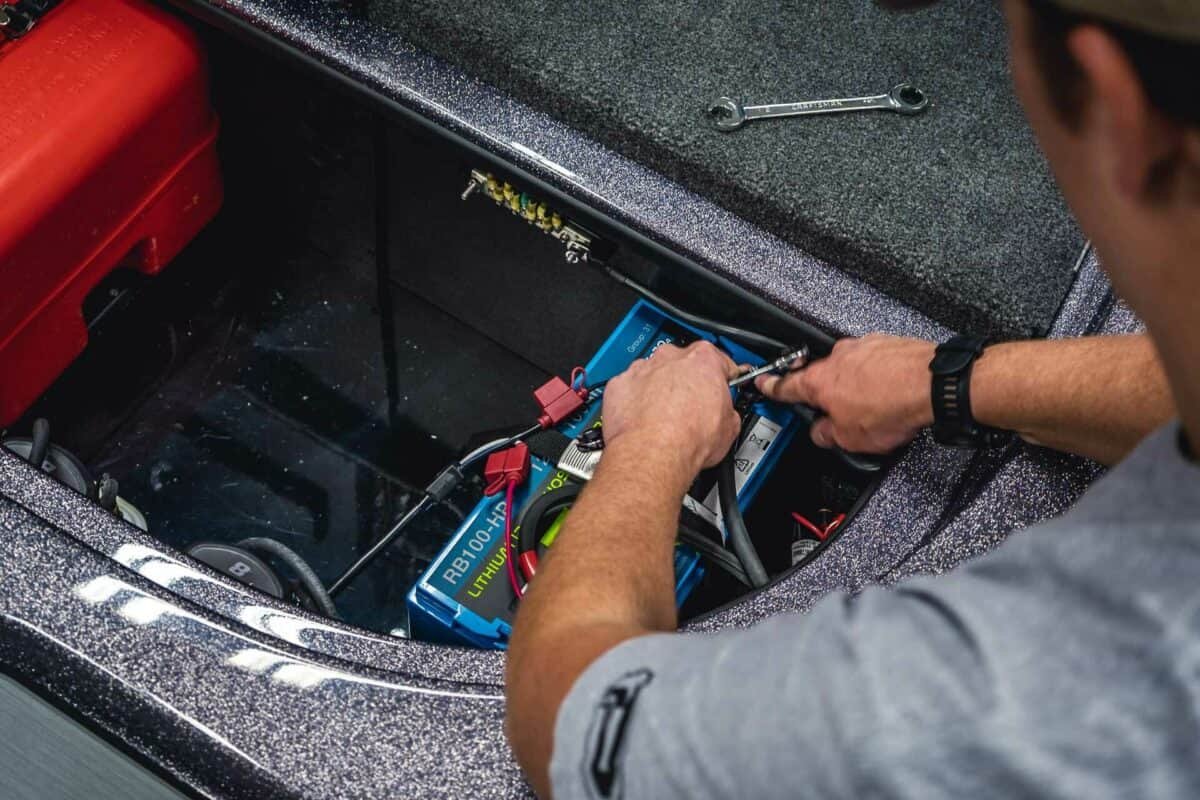

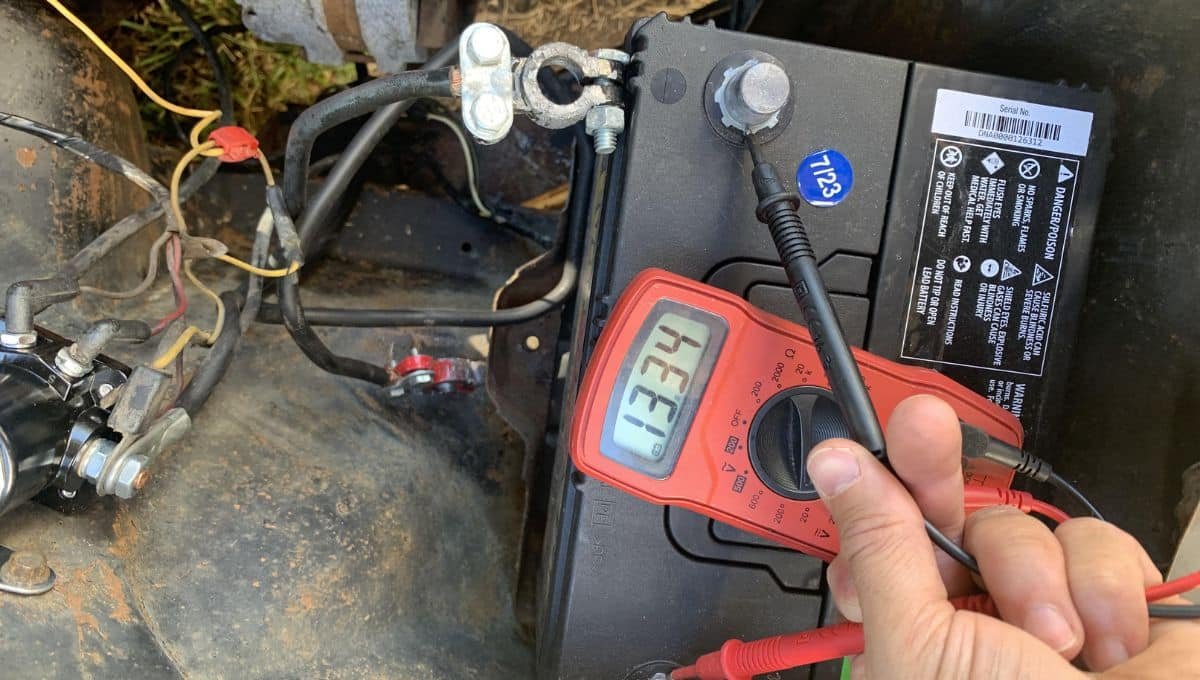


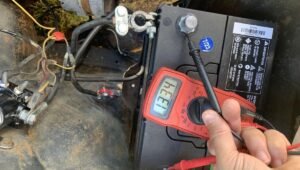








Post Comment